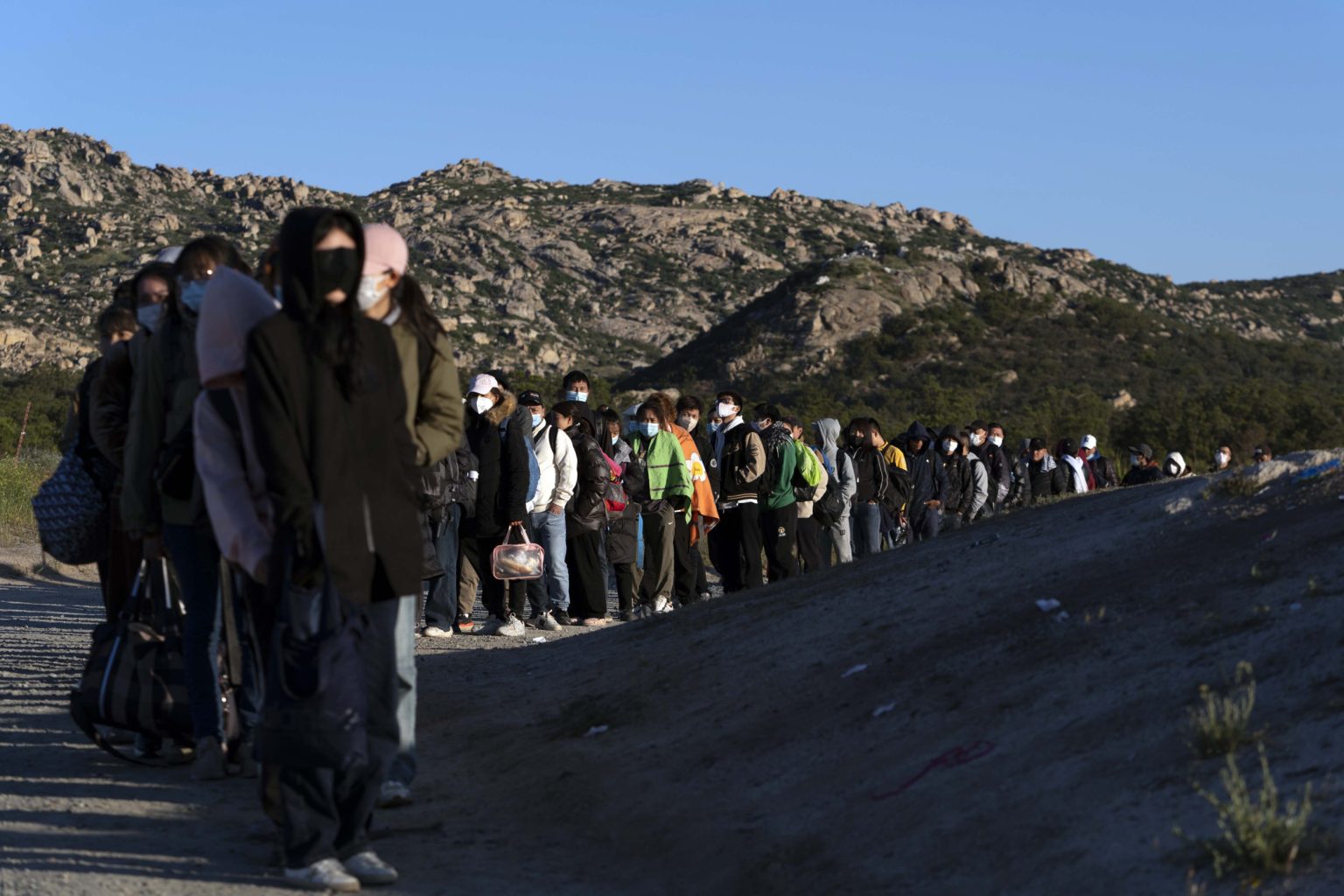The U.S. Supreme Court has blocked a case brought by five Republican attorneys general who wanted their states to take over defending an asylum ban introduced by the Biden administration last year. Immigrants’ rights groups had been fighting the ban since its introduction in May 2023, which limited southwest border asylum crossings. The federal government argued that the rule was vital for border security after the removal of pandemic-era Title 42 restrictions. In February, the Biden administration changed tactics and entered settlement proceedings with the groups, sparking concern from the Republican states led by Kansas Attorney General Kris Kobach. The group wanted the right to intervene and uphold the rule, arguing that state intervention was necessary due to perceived abdication of responsibility by the Homeland Security and Justice departments on illegal immigration.
A Ninth Circuit judge halted the case (Kansas v. Mayorkas) in May 2024, stating that the Republican attorneys general “do not have a significant protectible interest” in maintaining the asylum ban or reducing immigration into the United States. This decision reflects others across the U.S. that have upheld the federal government’s authority on immigration and border security, stemming from a 2012 Supreme Court decision in a case in Arizona. Despite this, Republican-led states have attempted to introduce their immigration legislation, but lower courts have blocked these attempts, potentially leading to hearings in a Supreme Court that has changed significantly since over a decade ago. Kansas, Alabama, Georgia, Louisiana, and West Virginia took their case to the U.S. Supreme Court, hoping it would overrule the Ninth Circuit’s decision, but on Monday, the court declined to hear the case.
The decision was welcomed by the American Civil Liberties Union (ACLU), one of the groups that challenged the asylum ban. The ACLU’s deputy director of the Immigrant Rights Project, Lee Gelernt, stated that states cannot intervene in litigation simply because they disagree with federal immigration policy politically. In June 2024, President Joe Biden introduced an executive order that heavily restricted border crossings, replacing the May 2023 asylum ban. The new ban caps crossings at 1,500 per day, with encounters needing to fall below that line for 28 consecutive days for entries to resume. Recent data from U.S. Customs and Border Protection show that arrests at the border have decreased over recent months and are significantly lower than their peak in 2022 and much of 2023.
The efforts to limit southwest border crossings initiated by President Joe Biden have faced legal challenges from immigration rights groups and Republican attorneys general. Despite multiple attempts by Republican-led states to introduce their immigration legislation, lower courts have blocked these attempts, leading to potential hearings in a much-changed Supreme Court compared to over a decade ago. The U.S. Supreme Court declined to hear a case brought by five Republican attorneys general seeking their states to take over defending an asylum ban introduced by the Biden administration. The federal government argued that the asylum ban was crucial for border security after the removal of pandemic-era Title 42 restrictions. The ACLU and other groups have sued over the effective ban introduced by Biden in June 2024 that heavily restricts border crossings, capping them at 1,500 per day. Arrests at the border have decreased over recent months and are significantly lower than their height in 2022 and much of 2023, according to recent data from U.S. Customs and Border Protection.


